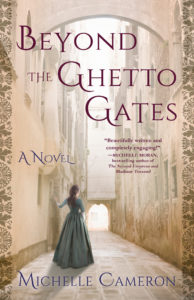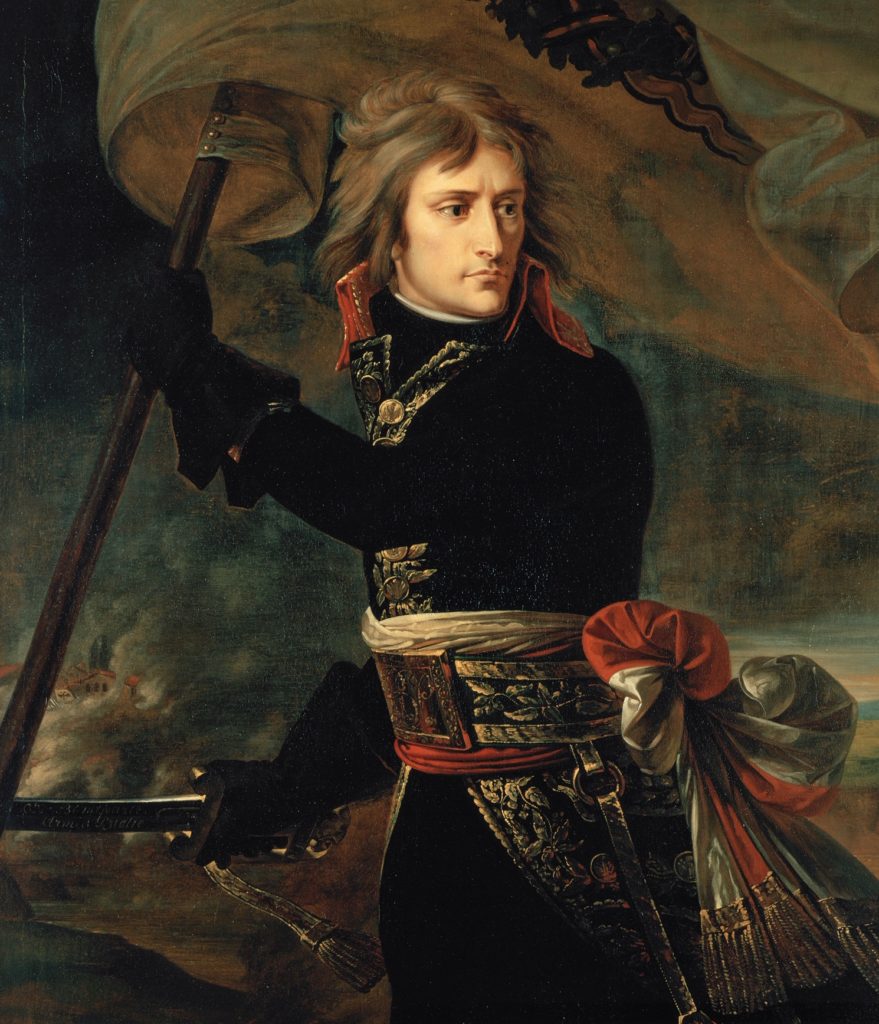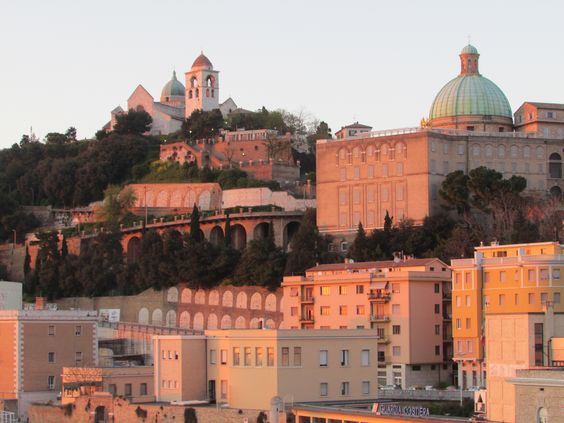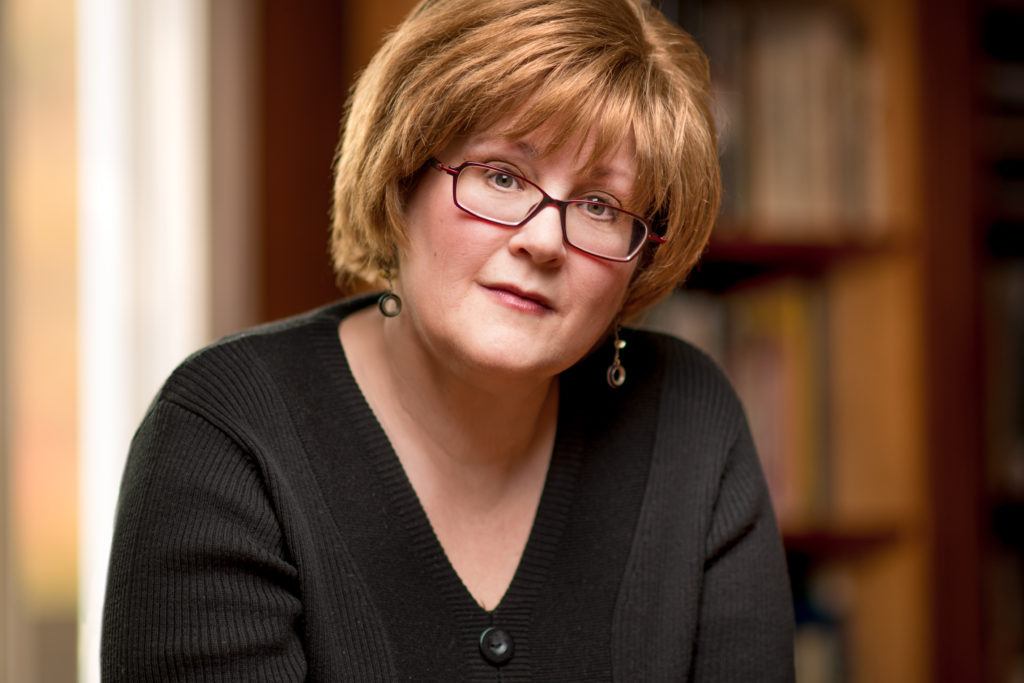Beyond the Ghetto Gates by Michelle Cameron
 In the first of a series on fiction that sheds light on Napoleon Bonaparte, I’m featuring Beyond the Ghetto Gates. This historical novel takes place in 1796, as twenty-seven-year-old Bonaparte, general in chief of the “Army of France in Italy,” sweeps through the northern Italian kingdoms, conquering all in his path. In the process, he and persecuted Jews become allies.
In the first of a series on fiction that sheds light on Napoleon Bonaparte, I’m featuring Beyond the Ghetto Gates. This historical novel takes place in 1796, as twenty-seven-year-old Bonaparte, general in chief of the “Army of France in Italy,” sweeps through the northern Italian kingdoms, conquering all in his path. In the process, he and persecuted Jews become allies.
While Napoleon’s not the central character in this fine novel, his arrival in the Adriatic Sea port of Ancona provides its historical catalyst. There, Napoleon breaks down the city’s ghetto gates, freeing Ancona’s Jewish population from centuries-old physical and civil restrictions. Young General Bonaparte, already an efficient administrator, reorders civil society to meet his concept of justice. The locals are bemused, then angered. A Jewish French soldier provides a personal point of view of Napoleon’s army. A culturally fraught love tangle ensues.
Here’s author Michelle Cameron’s summary of the main plot:
“When French troops occupy the Italian port city of Ancona, freeing the city’s Jews from their repressive ghetto, two very different cultures collide. Mirelle, a young Jewish maiden, must choose between her duty—an arranged marriage to a wealthy Jewish merchant—and her love for a dashing French Catholic soldier. Meanwhile, Francesca, a devout Catholic, must decide if she will honor her marriage vows to an abusive and murderous husband when he enmeshes their family in the theft of a miracle portrait of the Madonna.”
Napoleon and the Jews in Italy
I asked Michelle—who did extensive research—to share her thoughts on Napoleon’s encounter with Italy’s Jewish population:
Beyond the Ghetto Gates takes place in 1796 – 1797 during Napoleon’s Italian Campaign. What was it about that time and place that inspired your novel?
I was searching for that rare happy moment in Jewish history – and they’re not easy to find! When I was reading Michael Goldfarb’s nonfiction book, Emancipation: How Liberating Europe’s Jews from the Ghetto Led to Revolution and Renaissance, I stumbled across the story of Napoleon’s first encounter with an Italian ghetto, and his decision to – rather dramatically! – demolish the gates in the harbor city of Ancona. That scene immediately spoke to me. Once I found that as the core of the story, I realized I’d need to give a sense of what it was like in Ancona both before and after Napoleon invaded that city – which meant that I needed to encompass a great deal of the campaign.

While Napoleon is not the main character in your novel, his actions and the arrival of his army in the Adriatic Sea town of Ancona are a major event in your plot. Immediately, Napoleon shifts power from the majority Christian faction into shared power with the persecuted Jewish minority. How did that work out?
Historically, that did not work out well, nor was it a long-term change. As I’m sure you and your readers know, once the Congress of Vienna convened, they were set on turning the clock back to pre-Revolutionary days – and certainly to erase every vestige of Napoleon’s conquest of Europe. So the Pope took back control of Ancona, along with other previous Papal states – and restored the ghettos, which did not come down in entirety until 1870, when Italy actually became a true country.
One of the main characters in your novel, Daniel, is a French Jewish soldier. There’s also reference to a French “unit of artillerymen formed of almost all Jews.” Did that unit really exist? Do you know if there were many Jews in the French army at that time? How were they treated?
This is where fact meets fiction. In Emancipation, Goldfarb talks of Napoleon sending a “detachment of mainly Jewish soldiers” to tear down the gates and emancipate Ancona’s Jews. I wanted Daniel to have a key role in that key episode – and also to be present during the battle of the Bridge at Lodi, when Napoleon, trained in artillery, loads cannon in the thick of battle despite the horror of his staff. This was a momentous day for Bonaparte, who claimed it was when he first recognized his destiny. Clearly, that meant that the “detachment of mainly Jewish soldiers” had to be a unit of artillerymen.

As for how many Jewish soldiers there were – once the Jews were granted citizenship in France, they had all the rights and duties of every Frenchman, and that included being drafted into the army. Considering the intense pressure France during the Directory period was under from, being attacked on several fronts, they were drafting boys as young as 17.
I’ve no evidence on how the Jewish soldiers were treated, but I would assume they were treated as Jews everywhere – both good and bad. The French aren’t always the most accepting of their Jews, as shown in the virulently biased arguments surrounding the question of Jewish citizenship during the early years of the Revolution, in the Dreyfus Affair of 1894 – 1906, and even today with rabid antisemitism causing many French Jews to flee to Israel. In fact, how the common soldier would treat a Jewish comrade is an interesting plot development that I might very well use in the next novel!
What does it mean to you that Napoleon’s army broke down the Ghetto gates? What do you think it meant to the Jews and to the Christians of the time?
For me, with all the benefit of hindsight, it was a rare (and relatively brief) happy moment in Jewish history. The gates had incarcerated the Jews of Italy since the first ghetto was established in Venice by decree of Doge Leonardo Loredan on March 29, 1516. They had to feel that, like the Jews of France, who were granted citizenship in a European country for the first time in millennia, it was the harbinger of a new age for them, one in which they were finally granted some form of political and personal freedom. And Napoleon was a huge part of that – which is why they gave him the nickname of Helek Tov, a riff on his last name, Bonaparte, or A Good Part.
For many of the Christians of Italy, however, it would have been further proof that the French meant to disregard their religion and forcibly secularize their society. They had watched the dismantling of religious institutions in France and feared that Napoleon’s troops would do the same to them.
Various motives have been attributed to Napoleon’s “freeing of the Jews” from the age-old European restrictions imposed on them. Have you come to any conclusion about his motives?
This is a question I get asked all the time during book club discussions and it’s a tough one to answer. My personal reading of Napoleon is that he had his eyes on the prize throughout his career. Why else, for instance, would he have sponsored two military newspapers, one progressive and the other conservative, both of which built him up as the hero of France, if he didn’t have political ambitions? I believe he saw demolishing the gates as an opportunity to act both symbolically and heroically – and in synch with the current policies of Jewish emancipation in France.
I do write a scene in the novel that speaks to his very brief experience as an exile from Corsica, putting words in his mouth that he gained sympathy for the Jews at that time. But his later interactions with the Jews would belie that, particularly when, as Emperor, he convened a Jewish Sanhedrin. I think he thought – like many of the Christian philosophers and clergy of the Enlightenment who supported Jewish citizenship – that when the Jews were given full citizenship, it would lead them naturally to assimilate. During the deliberations of the Sanhedrin, Napoleon was far from pleased that the Jews wanted to maintain their sense of separateness through their religious traditions. But Beyond the Ghetto Gates is many years distant to that event, so we don’t see that aspect of Napoleon’s attitude toward the Jews – yet.
Napoleon and Religious Superstition
In your novel, one of the major scenes with Napoleon is his encountering a miraculous portrait of the Madonna in a church the French were plundering. Is there a historical basis for Napoleon’s superstitious reaction to the miraculous sacred art?

It is based on an actual portrait located in the cathedral of Ancona (the Duomo di Ancona, Basilica Cattedrale Metropolitana di San Ciriaco), and which was reported by the real-life Francesca and Barbara Marotti to miraculously move as I describe in the novel, which they witnessed first on June 25, 1796. The Ancona Madonna portrait was the first of these miraculous paintings but was followed up by others in Rome and other Italian cities, including Civita Vecchia, Macerata, Ascoli, and Frascati. That initial sighting was written up in a juridical document commissioned by the Vatican. (I was fortunate enough to be able to get a published copy of that document – always wonderful when you have source material to use!)
As for Napoleon’s reaction, I used what I consider to be an anecdote that I discovered, a story which described how he reacted when he faced down the portrait. From that point forward, however, my dealings with the portrait are completely fictional – no one stole it or threatened to burn it, but it proved too fantastic a plot device not to play with further. In early versions of the novel, I tried to obfuscate what Napoleon felt when he saw the painting, but my beta readers objected strenuously – they all wanted to know! So I imagined what would hurt the ambitious young general the most – that the Madonna’s glare made him doubt himself and his grandiose destiny – and used that emotion to describe his reaction.
Napoleon and Shakespeare
Your novel in verse In the Shadow of the Globe is about the actors of Shakespeare’s Globe Theatre. How do you think Shakespeare—if the Bard had lived after or during Napoleon’s time—would have depicted Napoleon? How would he have portrayed Napoleon’s relationship with the Jewish people?
I think Shakespeare would have treated Napoleon as he treated Macbeth – as a usurper and a political being who (ultimately) could not hold onto his throne. Or as Henry V, who was beloved in Shakespeare’s version by his soldiers. After all, the young general made speeches to the troops every bit as rousing as Hal. Or – being as inventive as Shakespeare was – as an intricately complex character, both admirable and despicable, who had a sense of his own destiny, a sincere and possibly overweening wish to make his mark on the world, and whose ego refused to allow him surrender.
As for Napoleon’s relationship with the Jews, that ended up being more complicated than I portrayed in Beyond the Ghetto Gates, which was limited to a mere two years while he was a 26-year old general. I mentioned the Sanhedrin above, in which the Emperor was dissatisfied with the Jewish lack of desire to simply assimilate. I flatter myself to think Shakespeare would have seen the same dramatic possibilities I did at the ghetto gates of Ancona, and possibly would find a stage-worthy way to show Napoleon’s disappointment that he ultimately couldn’t bend the Jewish will to his liking.
A few words about the author:

MICHELLE CAMERON is a director of The Writers Circle, an NJ-based organization that offers creative writing programs to children, teens, and adults, and the author of works of historical fiction and poetry: Beyond the Ghetto Gates (She Writes Press, 2020), which was awarded a Silver Medal by the Independent Publishers Book Awards (IPPYs), The Fruit of Her Hands: The Story of Shira of Ashkenaz (Pocket, 2009), and In the Shadow of the Globe (Lit Pot Press, 2003). Michelle lives in New Jersey with her husband and has two grown sons of whom she is inordinately proud. Visit her website for more information https://michelle-cameron.com. Beyond the Ghetto Gates is available on-line and through books stores.
Thank you, Michelle! And congratulations on this beautiful novel. I highly recommend it!
